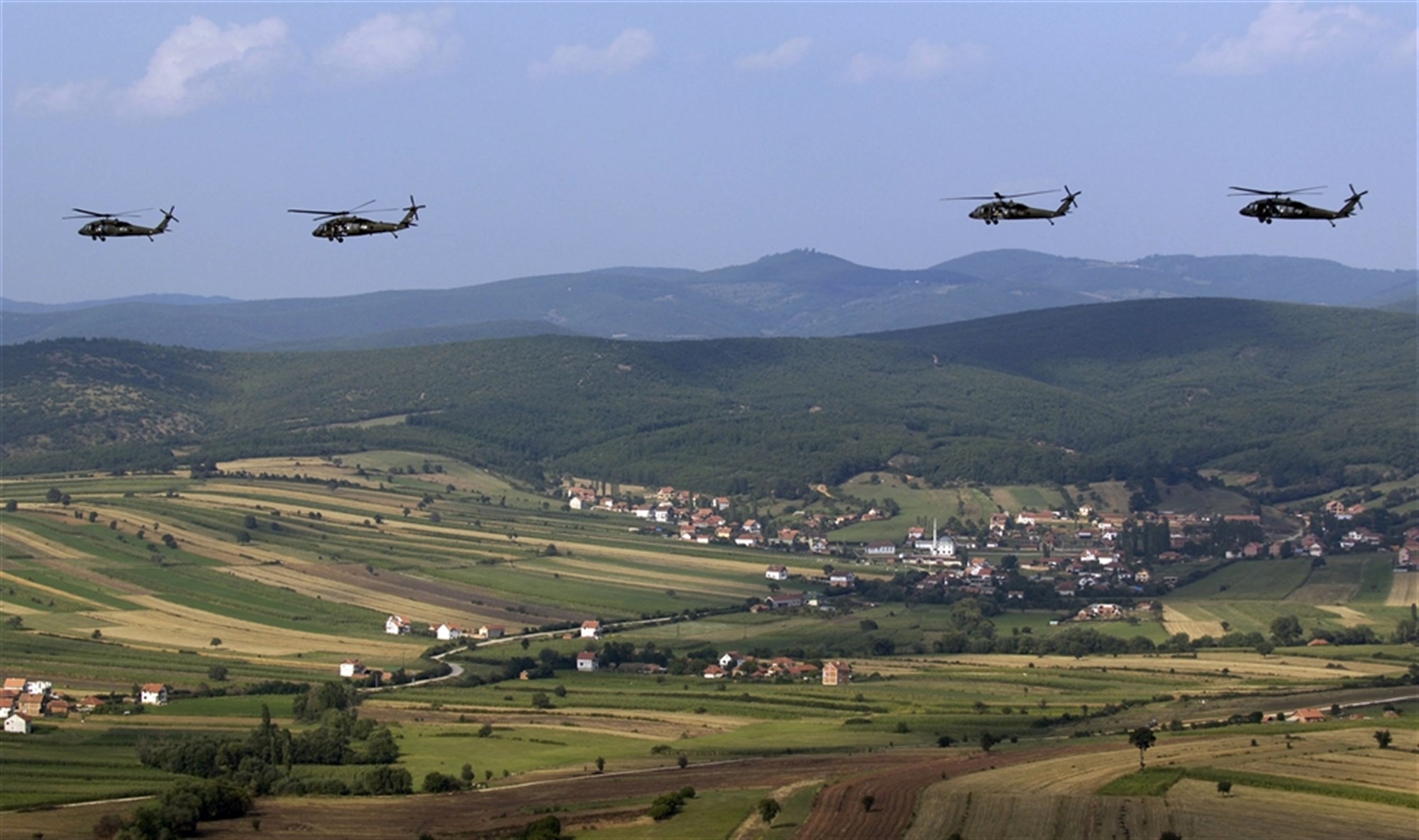Kosovans are indigenous to the Balkans, yet Kosovo has been colonised continuously since the late Roman Empire. Becoming the cultural, religious and political hub of Dardania, the Kosovars and their territory were always strategically vital for colonisers. It is because of this that the country lived under the shadow of its colonisers: never independent, and always hidden from the global platform. However, it was given its first chance at government in late 20th-century Yugoslavia, becoming a ‘socialist autonomous province’ in the late 1980s, before eventually, through much trial and tribulation, becoming recognised in 2008 as its own nation. The Kosovar spirit has remained strong despite decades of oppression and colonisation.
The oppression of Kosovar people was harsh. By 1989, Yugoslavia was crumbling, and the occupation of Kosovo by the Serbian militia was in full swing. Despite Kosovars making up 96% of the population, military occupation implemented its own apartheid, now known to be a precursor to the Balkan war that devastated the region from 1997 to 1999. Indeed, every aspect of society was slowly cleansed of any native input. The political disruption was clearest in the north, in the town Mitrovica, where my aunt was one of the first to lose her job. She worked as a doctor in the local hospital and, as a Kosovan woman with a university doctorate she was one of the first to be targeted in the systematic oppression of the Kosovar peoples by the Serbian powers of the time. It was a swift chop. One day she was with work, then, for the next decade, she relied on illegal work and the kindness of strangers to survive. This was not without precedent: from the onset of the 1980s, a flurry of Kosovar intellectuals – artists, doctors, military and politicians – were all slowly removed from positions of power.
Loyalty to Kosovo’s mother nation was heavily policed in the early years of Yugoslavia. Deemed subhuman by those in charge, the Kosovar identity was systematically repressed, forcing assimilation to this new state. Indeed, my paternal grandfather was sentenced to death by firing squad for showing allegiance to Albania, before being pardoned by Tito and imprisoned throughout the 1950s in Goli Otok, lovingly named ‘bare island’. After his imprisonment, any status my grandfather once held – military rank, university degree, etc. – were all stripped from him, and he was forced into early retirement, becoming a pensioner before his children were even sent to school.
It is key to understand that in this climate, Kosovars were repeatedly shown that any retaliation or protest would be met with severe reprimands. Police brutality was rife throughout Kosovo in the 1990s: young men would often be brutally beaten and killed for petty crimes. Yet even still, this repression fostered a spirit of resistance, creating the LDK (Lidhja Demokratike e Kosoves, the Kosovan Democratic Union) and forming a “parallel state” within the military occupation.
It was created as a reaction to the occupation in 1989 and was fronted by the democratically elected Ibrahim Rrugova. Not only was it reactionary in the sense that it opposed the military occupation, but its methods were peaceful – a stark contrast to the militant methods of the Serbian occupation. Organised disruptions, like the mass clanging of keys, pots and pans were common in the 90s as signs of the undying loyalty of the Kosovars to their own nation. The LDK was characterised by its focus on education and healthcare, now that Kosovan professionals were not allowed to work, people like my aunt would work illegally, tending to the ill, and schools were organised so the youth could learn in their mother tongue.
My family are native to Kosovo, yet I was born in England. In the mid-90s, my parents smuggled themselves into Albania for their honeymoon, which had just come out of a 50-year communist dictatorship. After the political situation decayed, they made their way into England in 1994 both under Czechoslovakian identities – my father now Jaroslav Duda, seeking asylum from the war.
The spy fiction my parents endured over their honeymoon seems just that when compared to the horrors the rest of my family were to undergo. My aunt had four children in 1999, when she was told to gather her belongings and leave her house. With their lunch still on the table, the valuables they took with them were quickly ransacked and they were sent on their way with nothing but the clothes they were wearing. They endured weeks of suffering: mother and child were split, her husband having been taken away to be executed whilst army officers held knives to the children’s throats. When they eventually returned home, their neighbourhood was in ruins, and the family were forced to walk to Albania (where the ‘motherland’ turned them away and they took asylum in Montenegro). My barely adolescent uncle was forced to smuggle himself across Europe in the hopes of reaching England where my mother waited for him, a situation incomprehensible in the days where immediate communication was basically non-existent.
Even today, faces of those that the war never took responsibility for adorn the gates of Kosovan parliament
A generation of artists, scholars, and fighters were lost, and not only as casualties in the war. There were also those that lost their chance to educate, and a whole culture that was destroyed, both literally and figuratively, in a country that was never truly given a chance to be, a country that is just now starting to rebuild, and resist.

